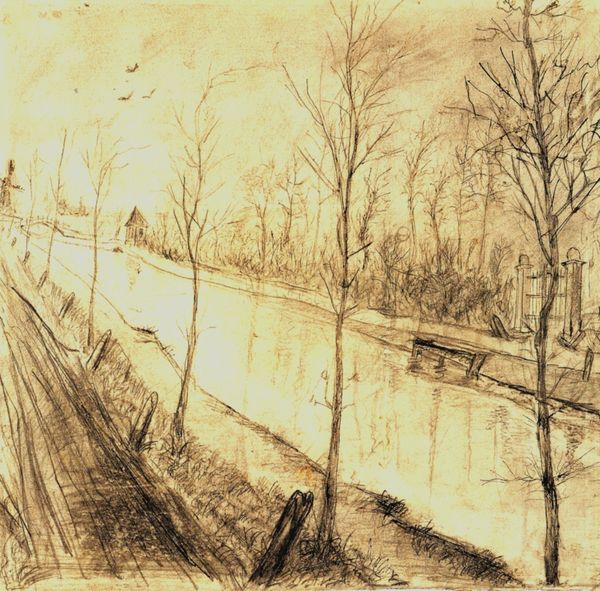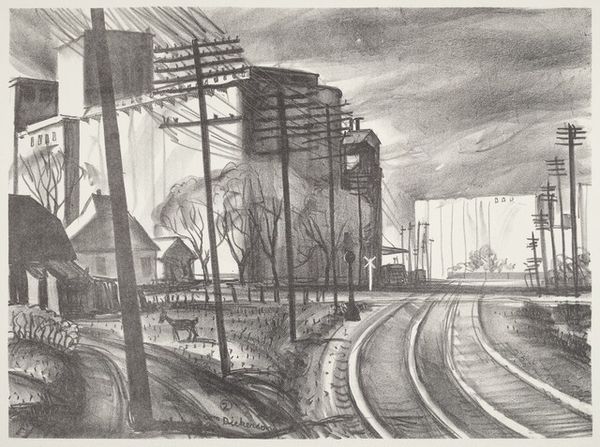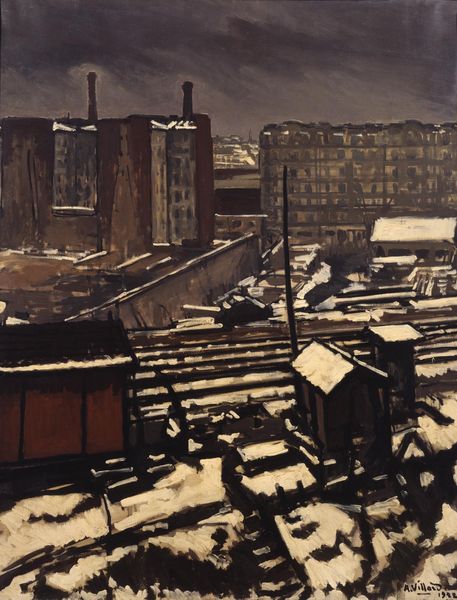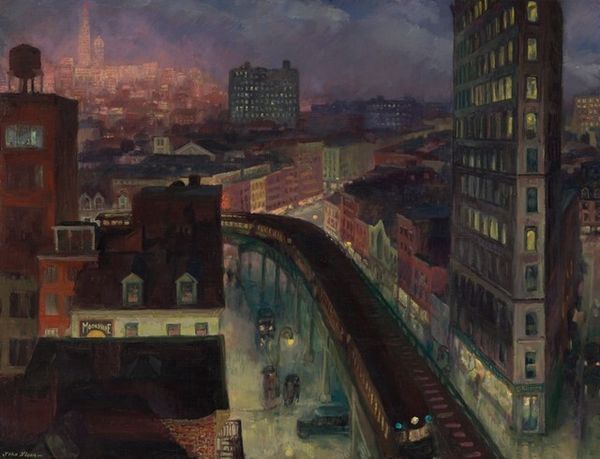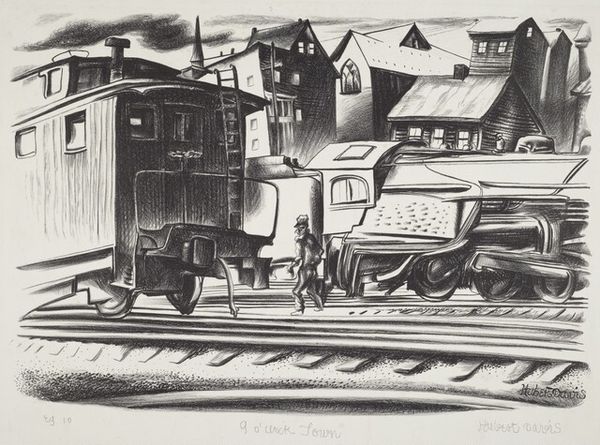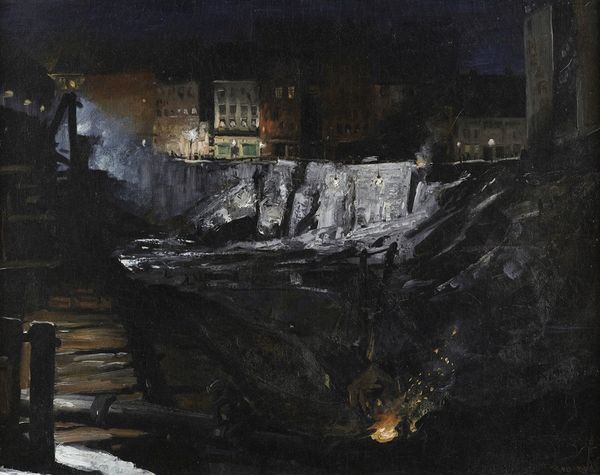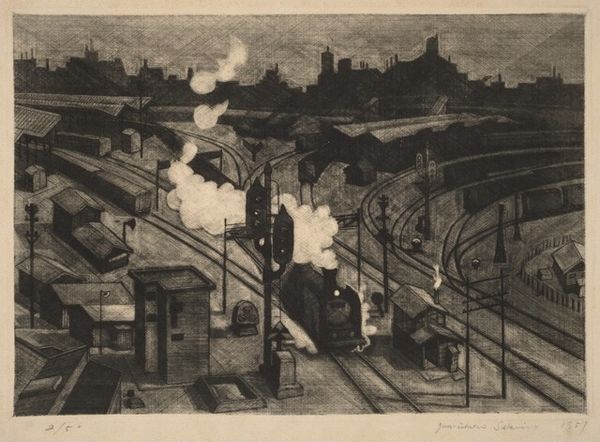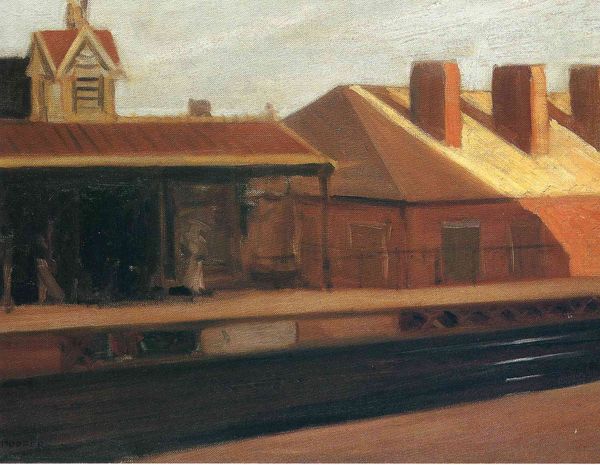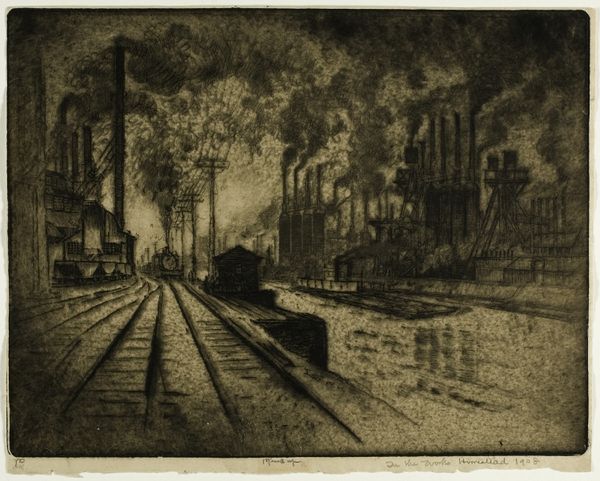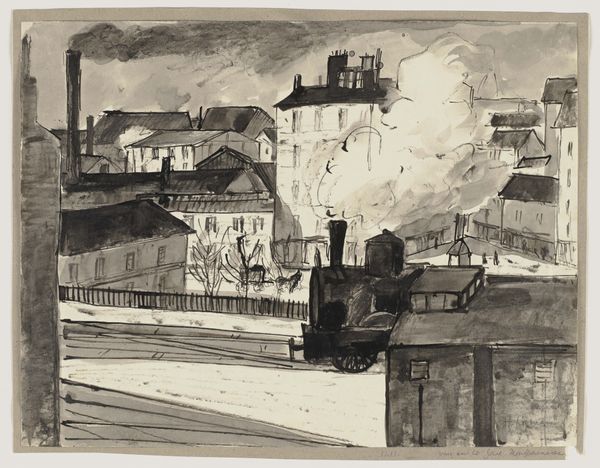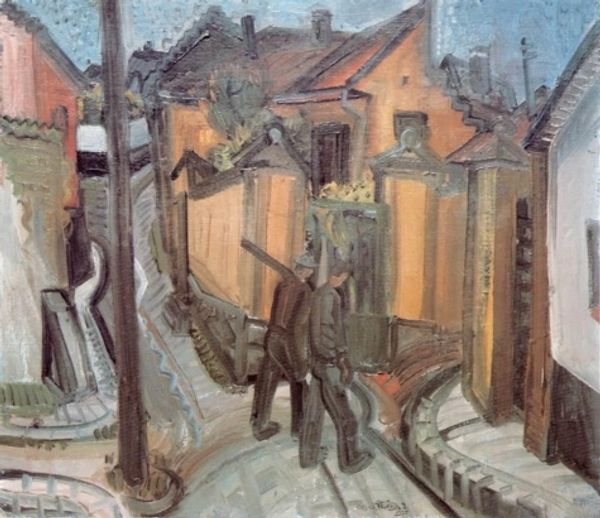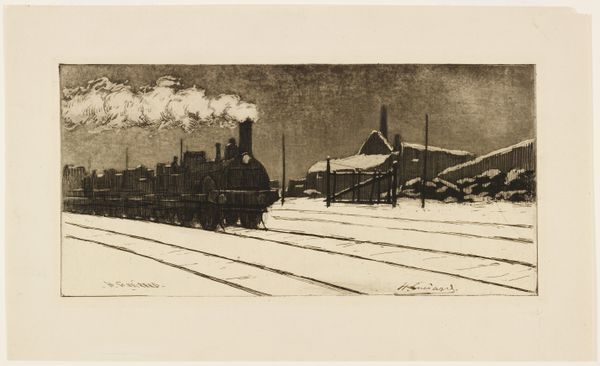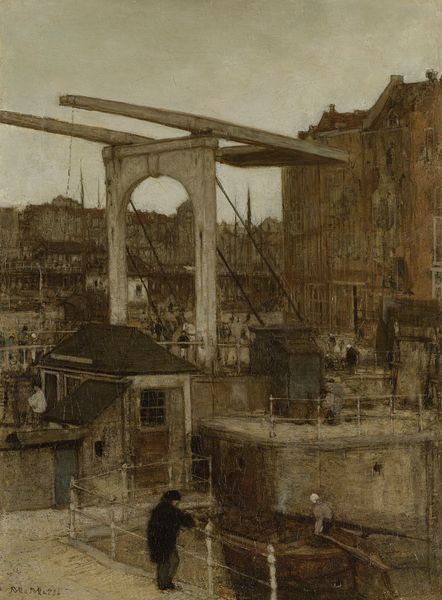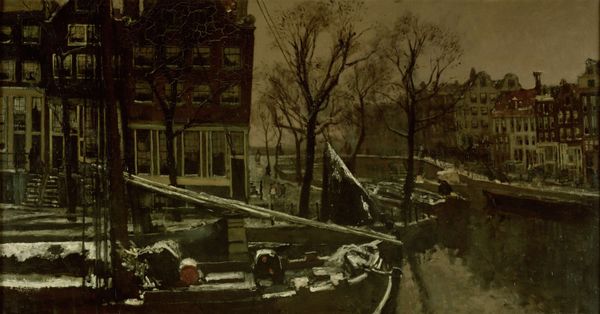
Dimensions: 125 x 120 cm
Copyright: Public domain US
Curator: Paul Delvaux's "For the Brussels Luxembourg Station," painted in 1922, offers us a striking composition in oil paint. What's your first take on this piece? Editor: Oh, this is deliciously bleak! Like stepping into a dream about industry gone wrong. It’s as if a train station from the early 20th century is slowly sinking into a bog of sepia tones. Melancholy on tracks, wouldn't you say? Curator: Indeed. The restricted palette—dominated by earth tones—certainly lends itself to a somber reading. Note the almost oppressive sky; its low value reinforces the sense of enclosure. Editor: Absolutely. It's a fascinating choice given impressionism tends to play with brighter colours. What you called 'enclosure', feels more like quiet to me, or maybe… resignation. See how the tracks just curve and fade into the gloom? It evokes a sort of... inexorable journey, I think. Almost as if each rail has its own story that quietly converge as time flows. Curator: The use of line is quite pronounced here; the converging tracks create a powerful perspectival effect. This linear emphasis, combined with the almost photographic detail of the locomotives, anchors the work in a particular representational mode. Do you believe it echoes with social ideas from the time of industrial and social change? Editor: Hmm. "Anchors" maybe too firm a word... It hints at that world. But there is more poetry to it for me than direct social commentary, even if the trains feel symbolic of change and the passing of time, of course. Curator: The steam, or perhaps smoke, adds to the density. And how would you describe its materiality? Does the application of oil affect the way it comes across? Editor: Mmm, you are right... those plumes almost humanize the steel machines, right? And yeah, the way he uses oil looks more to muddle rather than clarify. Look at how everything sort of blurs gently around the edges; feels quite romantic! And while some might call it grim, I find an odd sense of beauty. A beauty of forgotten futures. Curator: I concur with your last observation! Perhaps its charm lies exactly there. Thank you for those insights! Editor: Thank you, a grim yet fruitful journey through time.
Comments
No comments
Be the first to comment and join the conversation on the ultimate creative platform.
